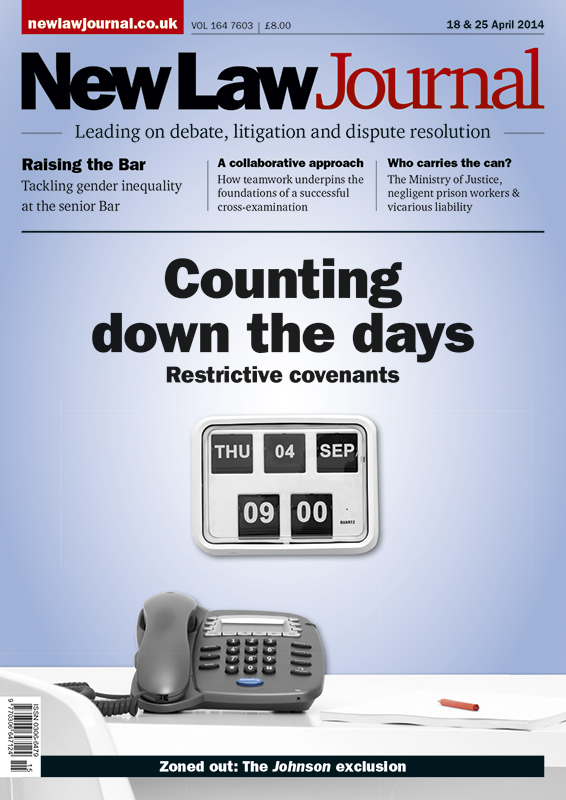
Tom Walker & Richard Marshall explain why some employees may have less waiting time between jobs in future
Does the Johnson exclusion zone apply to constructive dismissal? Anna Macey reports
Robert O’Leary returns to the subject of who bears the risk for a working prisoner’s negligence
Alexander Bastin assesses the impact of Daejan Investments v Benson...a year on
Sophy Miles & Beverley Taylor highlight the problems stemming from the Mental Capacity Act 2005
Is there a right to inspect a defendant’s liability insurance, ask Rawdon Crozier & Anthony Eskander
Peter Vaines calls for greater security for taxpayers against negligence charges & a dose of common sense
R (on the application of JC and another) v Central Criminal Court [2014] EWHC 1041 (Admin), [2014] All ER (D) 53 (Apr)
Ryanair Ltd v Revenue and Customs Commissioner [2014] EWCA Civ 410, [2014] All ER (D) 44 (Apr)
MOVERS & SHAKERS

Jackson Lees Group—Jannina Barker, Laura Beattie & Catherine McCrindle
Firm promotes senior associate and team leader as wills, trusts and probate team expands

Asserson—Michael Francos-Downs
Manchester real estate finance practice welcomes legal director

McCarthy Denning—Harvey Knight & Martin Sandler
Financial services and regulatory offering boosted by partner hires







